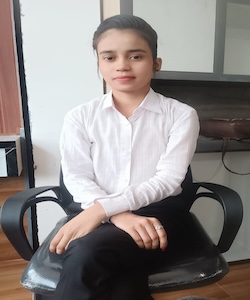The Telangana Board of Intermediate Education (BIE) has officially announced a series of major reforms aimed at modernizing the state’s intermediate education system. Starting from the academic year 2026–27, these changes are set to make learning more practical, continuous, and technology-driven. In particular, the reforms seek to shift the focus from traditional exam-based evaluation to a more holistic and skill-oriented approach. Moreover, by integrating digital tools and continuous assessments, the board intends to enhance student engagement and prepare them for real-world challenges. Overall, this marks a significant move towards transforming education in Telangana into a more dynamic and future-ready system.

Key Reforms
- Internal Exams for All Streams: Every subject in Science, Commerce, and Arts will now include 20 marks for internal assessment, focusing on activity-based learning and continuous evaluation.
- Year-Wise Practical Exams: Practical exams will be held at the end of both first and second years, instead of only in the second year. Each will carry 15 marks, ensuring hands-on learning from the start.
- QR Codes on Textbooks: From 2026–27, all textbooks will feature QR codes that link to digital learning materials, videos, and interactive resources for self-study and better understanding.
- Revised Syllabus: The board will align its syllabus with NCERT standards, reducing overload and ensuring students are better prepared for national-level exams.
Benefits
- Encourages continuous learning and practical skills.
- Reduces last-minute exam pressure.
- Promotes digital and blended learning.
- Aligns Telangana’s education with national standards.
Conclusion
The Telangana Intermediate Board’s 2026–27 reforms mark a major step forward, transforming traditional classroom learning into a modern, skill-based, and technology-driven system. By introducing internal assessments, implementing year-wise practical exams, and integrating QR code-enabled textbooks, the board aims to move beyond rote memorization and toward continuous evaluation. As a result, the focus now shifts from passive learning to active participation, linking theory with real-world application. Ultimately, these changes pave the way for a more engaging, relevant, and future-ready education system.
FAQs
1. When will these changes be implemented?
Ans: From the 2026–27 academic year.
2. How will marks be distributed?
Ans: Each subject will have 20 internal + 80 external marks.
3. Will first-year students have practical exams?
Ans: Yes, both first and second years will now have practical exams.
4. What is the purpose of QR codes on textbooks?
Ans: To provide digital content and videos for deeper understanding and flexible learning.
5. Why are these reforms important?
Ans: They bring the system closer to modern, activity-based, and technology-integrated education, preparing students for future challenges.

My self Anita Sahani. I have completed my B.Com from Purbanchal College Silapathar. I am working in Dev Library as a Content Manager. A website that provides all SCERT, NCERT 3 to 12, and BA, B.com, B.Sc, and Computer Science with Post Graduate Notes & Suggestions, Novel, eBooks, Health, Finance, Biography, Quotes, Study Materials, and more.









